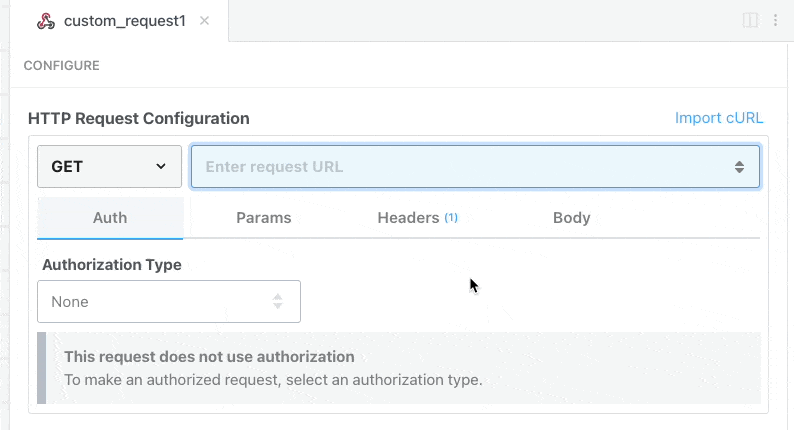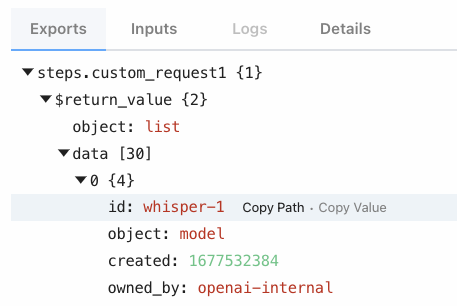What do you want to automate
with HTTP / Webhook and ManyChat?
Prompt, edit and deploy AI agents that connect to HTTP / Webhook, ManyChat and 3,000+ other apps in seconds.
Trusted by 1,000,000+ developers from startups to Fortune 500 companies
Popular Ways to Connect HTTP / Webhook with ManyChat#
Popular HTTP / Webhook and ManyChat Triggers#
Get a URL and emit the full HTTP event on every request (including headers and query parameters). You can also configure the HTTP response code, body, and more.
Get a URL and emit the HTTP body as an event on every request
Emit new event when a selected custom field on a user profile is added or updated. See the documentation
Emit new event when the content of the URL changes.
Popular HTTP / Webhook and ManyChat Actions#
Adds a specific tag to a user specified by their user ID. This action is essential to categorize and filter users based on business-specific parameters. See the documentation
Locates a user based on a particular custom field's value. See the documentation
Send an HTTP request using any method and URL. Optionally configure query string parameters, headers, and basic auth.
Send an HTTP GET request to any URL. Optionally configure query string parameters, headers and basic auth.
Delivers a dynamic message to a particular user specified by their user ID. See the documentation
Overview of HTTP / Webhook#
Build, test, and send HTTP requests without code using your Pipedream workflows. The HTTP / Webhook action is a tool to build HTTP requests with a Postman-like graphical interface.

Point and click HTTP requests
Define the target URL, HTTP verb, headers, query parameters, and payload body without writing custom code.

Focus on integrating, not authenticating
This action can also use your connected accounts with third-party APIs. Selecting an integrated app will automatically update the request’s headers to authenticate with the app properly, and even inject your token dynamically.

Pipedream integrates with thousands of APIs, but if you can’t find a Pipedream integration simply use Environment Variables in your request headers to authenticate with.
Compatible with no code actions or Node.js and Python
The HTTP/Webhook action exports HTTP response data for use in subsequent workflow steps, enabling easy data transformation, further API calls, database storage, and more.
Response data is available for both coded (Node.js, Python) and no-code steps within your workflow.

Connect HTTP / Webhook#
// To use any npm package on Pipedream, just import it
import axios from "axios"
export default defineComponent({
async run({ steps, $ }) {
const { data } = await axios({
method: "GET",
url: "https://pokeapi.co/api/v2/pokemon/charizard",
})
return data.species
},
})
Overview of ManyChat#
The ManyChat API lets you manage and automate conversations in your chatbot, giving you control over user data, tags, and messaging. Integrating ManyChat with Pipedream can supercharge your chatbot workflows, enabling you to connect your ManyChat bot to various apps and services, automate interactions based on triggers, and analyze chatbot data to improve user engagement.
Connect ManyChat#
import { axios } from "@pipedream/platform"
export default defineComponent({
props: {
manychat: {
type: "app",
app: "manychat",
}
},
async run({steps, $}) {
return await axios($, {
url: `https://api.manychat.com/fb/page/getInfo`,
headers: {
Authorization: `Bearer ${this.manychat.$auth.api_key}`,
"accept": `application/json`,
},
})
},
})
Community Posts#

